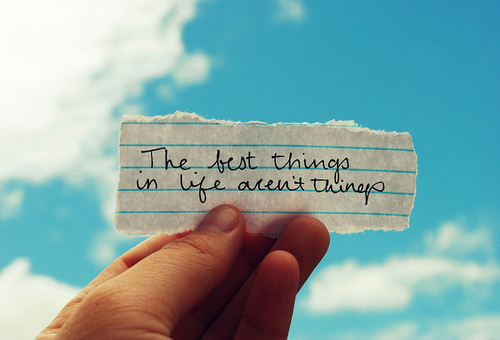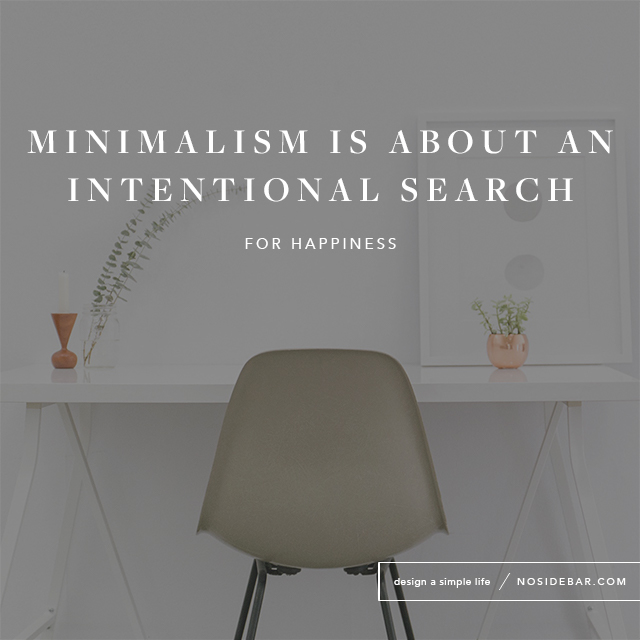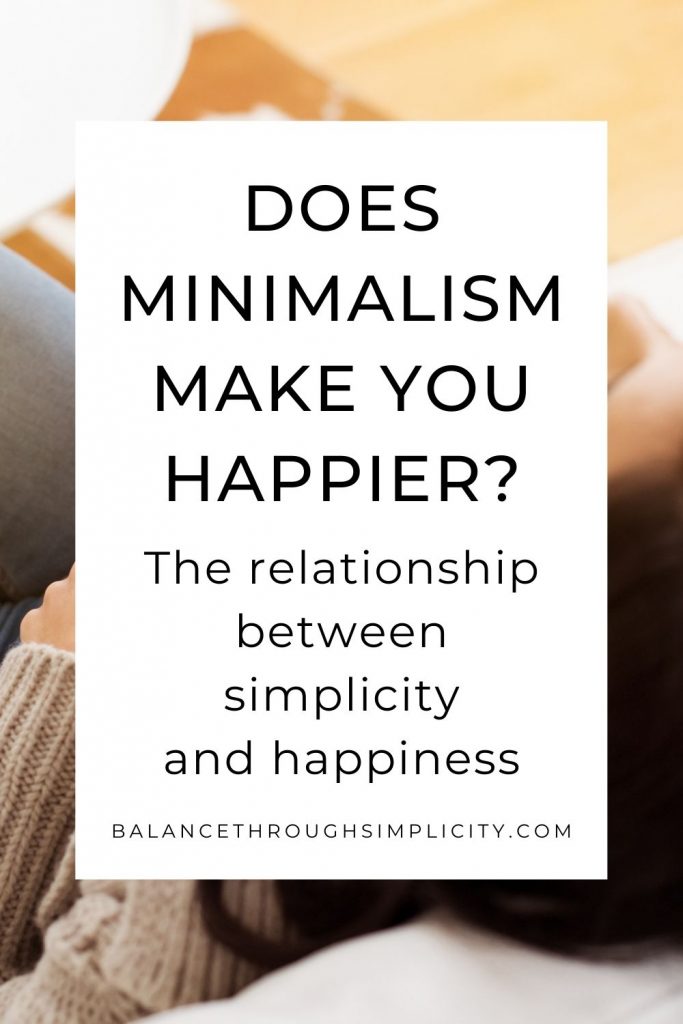Minimalism and Happiness: How Simplifying Your Life Leads to Greater Joy
In a world that constantly pushes us toward consumerism and accumulation, minimalism offers a refreshing approach to life. By stripping away excess and focusing on the essentials, minimalism not only declutters our physical spaces but also clears the mind, leading to greater happiness. In this article, we will explore how embracing a minimalist lifestyle can enhance your mental well-being, provide practical tips for adopting minimalism, and examine the connection between minimalism and happiness.
What is Minimalism?
Minimalism is more than just a design style or a way to organize your home. It is a mindset and a lifestyle that focuses on living with intention and purpose. Instead of accumulating things for the sake of status or convenience, minimalism encourages you to choose possessions, activities, and relationships that align with your values and goals.
By minimizing distractions, we create room for what truly matters. Whether it’s focusing on personal growth, relationships, or pursuing passions, minimalism fosters a more meaningful and fulfilled life.
“Simplicity is the ultimate sophistication.” — Leonardo da Vinci
The Connection Between Minimalism and Happiness
Minimalism and happiness are intrinsically linked. While many people think that more possessions or a busy schedule equate to more satisfaction, studies show that a simpler life leads to greater joy and contentment. Here’s why:
-
Less Stress: Fewer possessions mean less clutter, which can help reduce stress and anxiety. A clean, organized space is a reflection of a calm mind.
-
More Time: Minimalism allows for more time to engage in activities that truly make you happy, whether that’s spending time with loved ones or pursuing a hobby.
-
Better Relationships: When you’re not preoccupied with material things, you can focus on building deeper, more meaningful connections with people.

How Minimalism Reduces Stress and Anxiety
One of the key benefits of minimalism is how it helps reduce mental clutter. In a consumer-driven society, we are constantly bombarded with advertisements, social media posts, and news cycles that promote the idea that happiness is found through acquisition and consumption. Minimalism counters this by encouraging you to take a step back and prioritize what truly adds value to your life.
By embracing a minimalist approach, you reduce the pressure to constantly keep up with the latest trends or maintain a certain status. This frees up mental space, allowing you to focus on what really matters—personal growth, relationships, and health.
Minimalism and Time Management: More Time for What Matters
When you declutter your physical space, you also clear the way for better time management. Instead of spending your time maintaining or organizing an overwhelming amount of possessions, you can direct your energy toward more fulfilling activities.
-
Simplify your schedule: Cut out unnecessary commitments that don’t align with your goals.
-
Prioritize self-care: Set aside time for activities that nurture your well-being, like exercise, meditation, or creative hobbies.
-
Focus on quality over quantity: Spend meaningful time with people you care about, rather than being distracted by numerous superficial connections.
By decluttering your time, you’ll notice a sense of relief and freedom that leads to increased happiness.

Practical Tips for Embracing Minimalism
Adopting minimalism doesn’t have to be an all-or-nothing approach. It’s about making intentional decisions to simplify your life and prioritize what truly matters. Here are some practical tips to help you get started:
1. Declutter Your Space
The first step in embracing minimalism is decluttering your living space. Start with one room at a time and ask yourself: “Does this item add value to my life?” If the answer is no, consider donating or discarding it.
2. Create a Capsule Wardrobe
A capsule wardrobe is a minimalist approach to fashion, where you only keep a small number of clothing items that are versatile, timeless, and easy to mix and match. This reduces decision fatigue and ensures you only wear clothes you truly love.
3. Limit Your Digital Consumption
In today’s digital age, we are constantly overwhelmed by information. Unsubscribe from email lists that no longer serve you, unfollow accounts that make you feel stressed, and set limits on your screen time. This creates a healthier relationship with technology.
4. Prioritize Quality Over Quantity
Instead of constantly buying new items, focus on acquiring high-quality, long-lasting goods that serve a clear purpose. Whether it’s your furniture, clothing, or tech gadgets, investing in fewer, better items reduces waste and contributes to a more sustainable lifestyle.
5. Practice Gratitude
Minimalism isn’t just about what you remove from your life, but also about appreciating what you already have. Practice gratitude daily, and you’ll quickly realize that happiness doesn’t come from material possessions but from a mindset of appreciation.
The Psychological Benefits of Minimalism
Embracing minimalism can lead to significant psychological benefits, including:
-
Increased mental clarity: A clutter-free environment fosters a calm, clear mind, making it easier to focus on important tasks.
-
Reduced anxiety: By simplifying your surroundings and routines, you reduce the mental burden of managing excess possessions or commitments.
-
Improved decision-making: When you have fewer distractions, you’re able to make more thoughtful and intentional decisions.
Minimalism as a Form of Self-Care
Minimalism can be a powerful form of self-care. By removing unnecessary distractions, you give yourself the gift of time and mental space to focus on your well-being. Whether it’s practicing mindfulness, engaging in creative pursuits, or simply taking time to relax, minimalism helps you prioritize activities that promote happiness.

Minimalism and Happiness: Real-Life Stories
Many people who have embraced minimalism report experiencing greater happiness and contentment. One popular example is the story of The Minimalists, Joshua Fields Millburn and Ryan Nicodemus, who left behind high-paying corporate jobs and embraced a life of simplicity. In their documentary and blog, they share how decluttering their lives led to a more fulfilling, meaningful existence.
Another example is Marie Kondo, whose KonMari method of decluttering has inspired millions worldwide to simplify their spaces and, in turn, their lives. By focusing on only keeping items that “spark joy,” people have reported feeling lighter, more organized, and happier.
“The more I declutter, the more I realize how little I need to be happy.” — Marie Kondo
Frequently Asked Questions (FAQs)
1. How can minimalism improve my mental health?
Minimalism reduces the mental clutter associated with excess possessions, commitments, and distractions. By simplifying your environment and daily routine, you create more space for relaxation, focus, and personal growth, which ultimately improves your mental well-being.
2. Do I need to get rid of everything to embrace minimalism?
No, minimalism is about intentionality. You don’t have to discard everything you own, but rather evaluate your possessions and focus on keeping only those that serve a purpose or bring you joy.
3. Can minimalism improve my relationships?
Yes! By prioritizing what truly matters, minimalism helps you spend more time on activities and relationships that add value to your life. This leads to deeper, more meaningful connections with others.
4. Is minimalism a sustainable lifestyle?
Absolutely. Minimalism promotes sustainability by encouraging you to buy fewer, higher-quality items that last longer. This reduces waste and supports a more eco-friendly way of living.
Conclusion
Minimalism isn’t just about owning fewer things; it’s about embracing a mindset that leads to a more intentional, fulfilling life. By reducing distractions and focusing on what truly matters, you can cultivate greater happiness, mental clarity, and contentment. Whether you start small by decluttering your space or committing to a minimalist wardrobe, the benefits of minimalism are clear. Try it for yourself and see how simplifying your life can lead to greater happiness.
By embracing minimalism, you can find more joy, peace, and satisfaction in the present moment.








